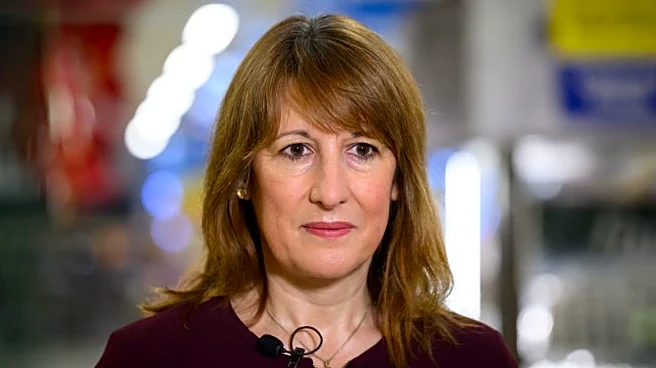(Reuters) -Global markets head into another packed week where political leaders, policymakers and consumers take centre stage against a backdrop of nervy markets - with tech stocks and the likes of bitcoin
coming under fire.
G20 leaders gather in South Africa, Britain's finance minister delivers a highly anticipated budget, while Alibaba's earnings will offer a snapshot of Chinese consumer demand and U.S. retailers brace for Black Friday.
Here's all you need to know about the coming week in markets by Dhara Ranasinghe and Amanda Cooper in London, Gregor Stuart Hunter in Singapore, Lewis Krauskopf in New York and Colleen Goko-Petzer in South Africa.
1/ SHOPPING SEASON
Focus on U.S. consumer spending will come into view next week with Black Friday heralding the important holiday shopping season.
Black Friday, the day after Thanksgiving that ushers in holiday sales, arrives as data have shown consumer sentiment slumping and inflation staying firm.
Still, a solid few years for the U.S. stock market could be making particularly higher-income consumers feel wealthier and ready to shop.
Next Tuesday's delayed release of September retail sales will also offer insight into consumer spending, which makes up more than two-thirds of U.S. economic activity.
2/ REEVES' WAIT IS OVER
Pre-budget leaks and speculation are par for the course for UK finance ministers. Yet the build-up to Rachel Reeves' Nov. 26 budget has been on another level entirely.
Reeves must raise tens of billions of pounds in taxes to stay on track for her self-imposed fiscal rules. Reports a week ago that she had no plans to raise income tax took markets by surprise. Just days earlier investors had taken an unexpected speech by the finance minister as a sign of tax hikes coming.
No doubt, Britain's Labour government is walking a tightrope as it tries to reassure bond markets that it can be trusted to be fiscally prudent while appeasing voters that manifesto pledges to not hike taxes will not be broken.
Recent selling in bonds, sterling and bank shares shows markets on edge. The budget wait is almost over but UK market volatility is likely not.
3/ CHINA TECH RALLY FACES ALIBABA TEST
Alibaba's earnings on Nov. 25 may reveal whether founder Jack Ma can deliver on his vow to "Make Alibaba Great Again" as he returns to favour in Beijing following a lengthy fall from grace.
The stock, the largest component of Hong Kong's Hang Seng Tech index, has almost doubled this year as investors vie for a slice of the red-hot Chinese AI sector.
But shares fell this month as the company faced allegations that it provides tech support for Chinese military operations against targets in the U.S., the FT reported. Alibaba has denied the accusations.
Alibaba has since announced an aggressive push into consumer AI, but that market is increasingly crowded. Citi reckons it won't be easy for Alibaba's chatbot Qwen to easily replace the likes of ChatGPT.
4/ G20 MINUS ONE
South Africa hosts the final G20 leaders' summit of its presidency before handing the baton to the U.S., as global economic growth slows, debt pressures mount, and poorer economies face severe climate-related impacts.
The meeting will proceed without U.S. representation, as President Donald Trump has announced the world's largest economy will not take part. South African President Cyril Ramaphosa has said he expects to pass the G20 gavel to an empty chair.
Pretoria intends to conclude its term by advancing priorities such as debt relief for struggling nations, fairer global trade regulations and improved climate financing for vulnerable countries.
But the absence of the group's largest economy raises questions about the bloc's ability to resolve critical global challenges.
5/ TRACKING BITCOIN'S 'DEATH CROSS'
Bitcoin, the apparent runaway-market success story of the past two years, is in a funk. It has lost roughly a third in value since early October's record $126,223, as investors grow increasingly nervous of anything that has risen that much that quickly, like AI-related stocks.
Even gold has been reined in by that same concern to some extent.
The crypto market as a whole has lost over $1 trillion in value since bitcoin's all-time high, as capital has flooded out of anything from meme coins to exchange-traded funds.
With little in the way of new fundamental catalysts, traders often latch on to technical charts to determine where a price should go next. Bitcoin is firmly below $90,000, and a so-called "death cross" has materialised on the charts this week - where the 50-day moving average crosses below the 200-day - often a harbinger of more losses ahead.
(Graphics by Kripa Jayaram, Compiled by Samuel Indyk; Editing by Conor Humphries)









